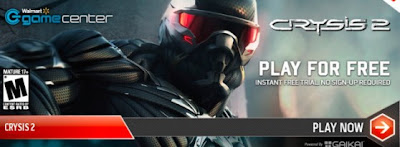
Sony announced tonight that it will acquire Gaikai, the streaming game service for $380 million. The deal officially closed on June 30, and Sony is purchasing the Aliso Viejo-based company as part of a move to disrupt the gaming business.
The news doesn’t come as a shock; rumors surrounding the potential acquisition rose in May and June of this year, but no official announcement was made until tonight by Gaikai.
What this acquisition means for partnerships that companies like Samsung, LG, Walmart, and others have with Gaikai is unclear, but the potential benefits for Sony are huge. They go anywhere from in-store kiosks playing any Playstation 3 or Playstation Vita title straight from a TV connected only to the internet, to no need for future console hardware because of streaming-only services. Sony has had the benefit, compared to Microsoft’s Xbox Live service, of offering free online gaming, and with a streaming cloud service the company may be able to turn the tide against the Redmond-based software giant.
Sony has repeatedly found trouble creating software platforms, something that Gaikai has done tremendously well with their streaming game service. This may prove to be the most important part of this acquisition for Sony, which has struggled to gain dominance in software development when compared to rivals like Microsoft and Nintendo. Sony’s move to the Playstation Mobile, a suite for games that run on both smartphones and game consoles, will also benefit from streaming functions. We’ve already seen earlier this year that streaming games can function very well over cell networks.
“By combining Gaikai’s resources including its technological strength and engineering talent with Sony’s extensive game platform knowledge and experience, Sony will provide users with unparalleled cloud entertainment experiences,” said Andrew House, President and Group CEO of Sony Computer Entertainment. “Sony will deliver a world-class cloud-streaming service that allows users to instantly enjoy a broad array of content ranging from immersive core games with rich graphics to casual content anytime, anywhere on a variety of internet-connected devices.”
“Sony has built an incredible brand with PlayStation and has earned the respect of countless millions of gamers worldwide,” said David Perry, CEO of Gaikai. “We’re honored to be able to help Sony rapidly harness the power of the interactive cloud and to continue to grow their ecosystem, to empower developers with new capabilities, to dramatically improve the reach of exciting content and to bring breathtaking new experiences to users worldwide.”
We’ve reached out to both Sony and Gaikai for more, and will update this article as the story unfolds. Mitch Lasky of Benchmark Capital said in a post tonight that years ago, back in the fall of 2009, that his company invested along with Rustic Canyon Ventures and New Enterprise Associates because Gaikai stood at the intersection of cloud computing and next-generation game distribution. Of Gaikai’s Perry, Lasky said, “David believed that his idea could change the world and he went out and made it happen.”
Source:http://venturebeat.com/2012/07/02/sony-buys-gaikai-game-streaming-service/

